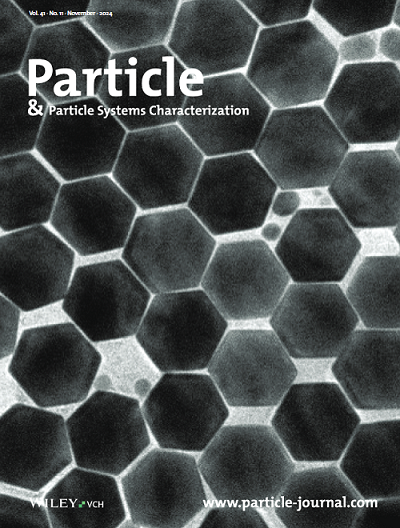用于热能存储的抗液体泄漏功能性软材料
IF 2.7
4区 材料科学
Q3 CHEMISTRY, PHYSICAL
引用次数: 0
摘要
功能性软材料在热能储存领域具有巨大的商业应用潜力,它要求具有较长的使用寿命、良好的柔韧性和抗液体泄漏能力。本文通过分子自组装和原位聚合耦合制备了一种具有热存储特性的复合水凝胶。疏水性硬脂酸(SA)作为一种蓄热相变材料(PCM),以油水乳液(O/W)的形式分散在聚丙烯酰胺(PAM)水凝胶网络中。具有良好柔韧性的 PAM 聚合物网络从物理上限制了 SA PCM 液滴之间的高频碰撞。这种独特的设计避免了相变乳液中的反乳化现象,因此制备的水凝胶复合材料可以防止液体泄漏。PAM 水凝胶网络起到了异质成核的作用,使 SA 乳液的超冷温度仅为 0.3 °C。另一方面,制备的软材料中的 SA PCM 液滴不直接与液态水接触,因此熔化/结晶过程与水无关。因此,这种软材料的蓄热密度高达 99.3 J g-1。本研究为设计软储能材料迈出了重要一步。本文章由计算机程序翻译,如有差异,请以英文原文为准。
Functional Soft Materials with Resistance to Liquid Leakage for Thermal Energy Storage
Functional soft materials have great potential commercial applications in thermal energy storage, which are required to have a long life, good flexibility, and resistance to liquid leakage. Herein, a composite hydrogel with thermal storage properties is prepared through coupling molecular self‐assembly and in situ polymerization. Hydrophobic stearic acid (SA), as a thermal storage phase change material (PCM), is dispersed in polyacrylamide (PAM) hydrogel network in the form of oil–water emulsion (O/W). The PAM polymer network with good flexibility physically limits high‐frequency collision between SA PCM droplets. This unique design avoids demulsification in phase change emulsion so that the as‐prepared hydrogel composite can resist liquid leakage. The PAM hydrogel network plays the role of heterogeneous nucleation, resulting in the super‐cooling of SA emulsion at only 0.3 °C. On the other hand, SA PCM droplets in as‐prepared soft material do not directly contact with liquid water, so melting/crystallization process is independent of water. As a result, the soft material exhibits a thermal storage density of up to 99.3 J g−1 . The present study is an important step toward designing soft energy storage materials.
求助全文
通过发布文献求助,成功后即可免费获取论文全文。
去求助
来源期刊

Particle & Particle Systems Characterization
工程技术-材料科学:表征与测试
CiteScore
5.50
自引率
0.00%
发文量
114
审稿时长
3.0 months
期刊介绍:
Particle & Particle Systems Characterization is an international, peer-reviewed, interdisciplinary journal focusing on all aspects of particle research. The journal joined the Advanced Materials family of journals in 2013. Particle has an impact factor of 4.194 (2018 Journal Impact Factor, Journal Citation Reports (Clarivate Analytics, 2019)).
Topics covered include the synthesis, characterization, and application of particles in a variety of systems and devices.
Particle covers nanotubes, fullerenes, micelles and alloy clusters, organic and inorganic materials, polymers, quantum dots, 2D materials, proteins, and other molecular biological systems.
Particle Systems include those in biomedicine, catalysis, energy-storage materials, environmental science, micro/nano-electromechanical systems, micro/nano-fluidics, molecular electronics, photonics, sensing, and others.
Characterization methods include microscopy, spectroscopy, electrochemical, diffraction, magnetic, and scattering techniques.
 求助内容:
求助内容: 应助结果提醒方式:
应助结果提醒方式:


